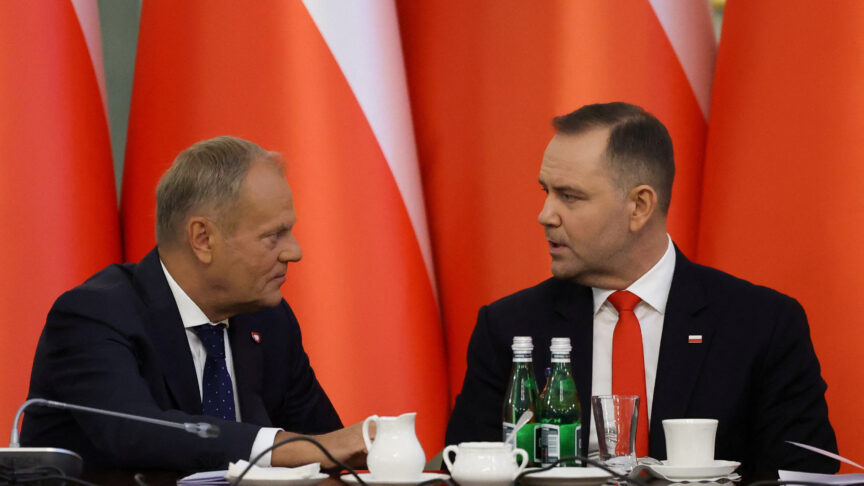What to do about Turkey?
Suspending Turkey’s EU accession process would be a strategic mistake of historic proportions.
Turkey will be on the menu as European leaders meet for dinner in Brussels on 19 October, but it won’t be a happy meal. Relations between the EU and Turkey have deteriorated sharply over the past few months and are likely to decline further. Europe has few good options in this deteriorating relationship, but it should not allow the increasingly loud voices to force its hand on an issue of long-term strategic concern.
No one is delusional about Turkey’s current state. President Erdogan’s consolidation of power continues, as do widespread purges following the failed coup attempt in July 2016. His repeated anti-European rhetoric is not just red meat for Turkey’s foes, but has also alienated Turkey’s friends in Europe. The arrest of Europeans and dual nationals has further made Turkey a toxic domestic issue in several European countries. In Germany, polls now show that only 3 percent of the population considers Turkey a reliable partner – Russia gets 21 percent.
Meanwhile in Turkey, Europe is seen as a hypocrite that lies about wanting Turkey as a member and whines about human rights but then enters into a transactional deal to keep refugees out. Few believe that the EU will ever let Turkey become a member. They point to the rise of anti-Islamic and anti-Turkish sentiments in Europe as well as skeptical voices in leading capitals. Even the liberal opposition in Turkey is deeply disappointed by the EU who they see as having given up on its principles and values by being too soft on Ankara.
Should the EU suspend accession talks?
It's hard to make the case today that Turkey meets the Copenhagen criteria on democracy, human rights, and rule of law. On the contrary, Erdogan’s political project of creating a centralised presidential system without real checks and balances is not only taking Turkey further away from the requirements of accession but actually runs counter to it. Suspension of the process would therefore send a strong signal to Erdogan that there are consequences for his actions.
It is sometimes argued that it would also clear the air and enable a more honest relationship between Europe and Turkey. It would enable the two parties to engage in pragmatic trade-offs without having to talk about human rights or values – something Ankara clearly does not want. If Putin’s Russia can have this sort of a transactional relationship with Turkey, why can’t the EU?
Formal suspension would effectively mean termination
There is also the argument that the EU undermines its own credibility with candidate countries in the Western Balkans by not ending the accession talks with Turkey. Why should they live up to the Copenhagen criteria and meet EU conditionality if the EU does not take action when Turkey is non-compliant?
But suspension would be a serious mistake. First of all, formal suspension would effectively mean termination. The political dynamic in Europe makes it hard to believe that the negotiations could be resumed even if Turkey turned into a paragon of democracy. The political reality in Austria and a number of other states means that they would surely block any such move. Since this is not going to change for the foreseeable future, it means that suspension cannot be treated as a tactical incentivising action. Suspension is rather a strategic decision that would permanently alter Europe’s relationship with Turkey.
Secondly, suspension would play directly into Erdogan’s hands. His rhetoric has deliberately sought to force the EU to end the talks, which would prove his anti-European agenda right and strengthen him domestically, especially among nationalist voters, ahead of elections in 2019.
Thirdly, pushing Turkey further away from Europe will only exacerbate divisions on foreign policy issues. Fears of Turkey pivoting to Russia are overblown (and happily propagated in Ankara), but it is hard to see how an alienated Turkey would be in Europe’s interest or increase Europe’s leverage over Turkey.
Fourthly, it would signal to “the 49 percent” – who voted against Erdogan’s constitutional amendments in the April referendum – that Europe has given up on their cause of democratizing Turkey. In doing so, it would not only remove the key international framework for talking with Turkey about democracy and human rights, but also erode domestic pressure for reform by demoralizing campaigners.
Missing the point
At the end of the day, the talk of suspension misses the point about the Turkey-EU relationship. The accession process is not the core grievance; it is rather the symptom of a long list of grievances. Even if the accession process disappeared tomorrow, there would still be major differences over issues such as how to resolve Cyprus, the Kurdish issue, and the state of democracy and human rights in Turkey. The EU would just have even less leverage than it does today, as Turkey would have fewer commitments to live up to.
So instead of formally suspending the accession process, the EU should leave it as it is – dormant. The accompanying message should be that the EU remains committed to making Turkey a member when it fulfills the accession criteria, but that the process will not move forward until Turkey moves away from its authoritarian path.
This message would send the right signal to Erodgan (that the EU cannot be manipulated into acting as his bogeyman), to “the 49 percent” (that the EU remains committed to their cause), and to other candidate countries (that there are real consequence of taking a non-democratic turn but that the EU is ready to revive the accession process once the situation changes).
Accession is a strategic policy that requires having the long view and not being too fixated on individual leaders who come and go. It is about Europe’s relationship with Turkey rather than with Erdogan. And while it is clear that Europe’s leaders could gain politically from a short-term confrontation with Erdogan, the continent has much to lose strategically from a long-term conflict with Turkey.
But it is clear that accession is not enough of a foundation for relations with Turkey today. There needs to be greater political engagement from European leaders with Turkey and greater efforts at cooperating on trade, security, and migration. These are the areas where Europe and Turkey can build a new partnership. Until then, Europe will be operating in crisis mode with Turkey.
The European Council on Foreign Relations does not take collective positions. ECFR publications only represent the views of their individual authors.


